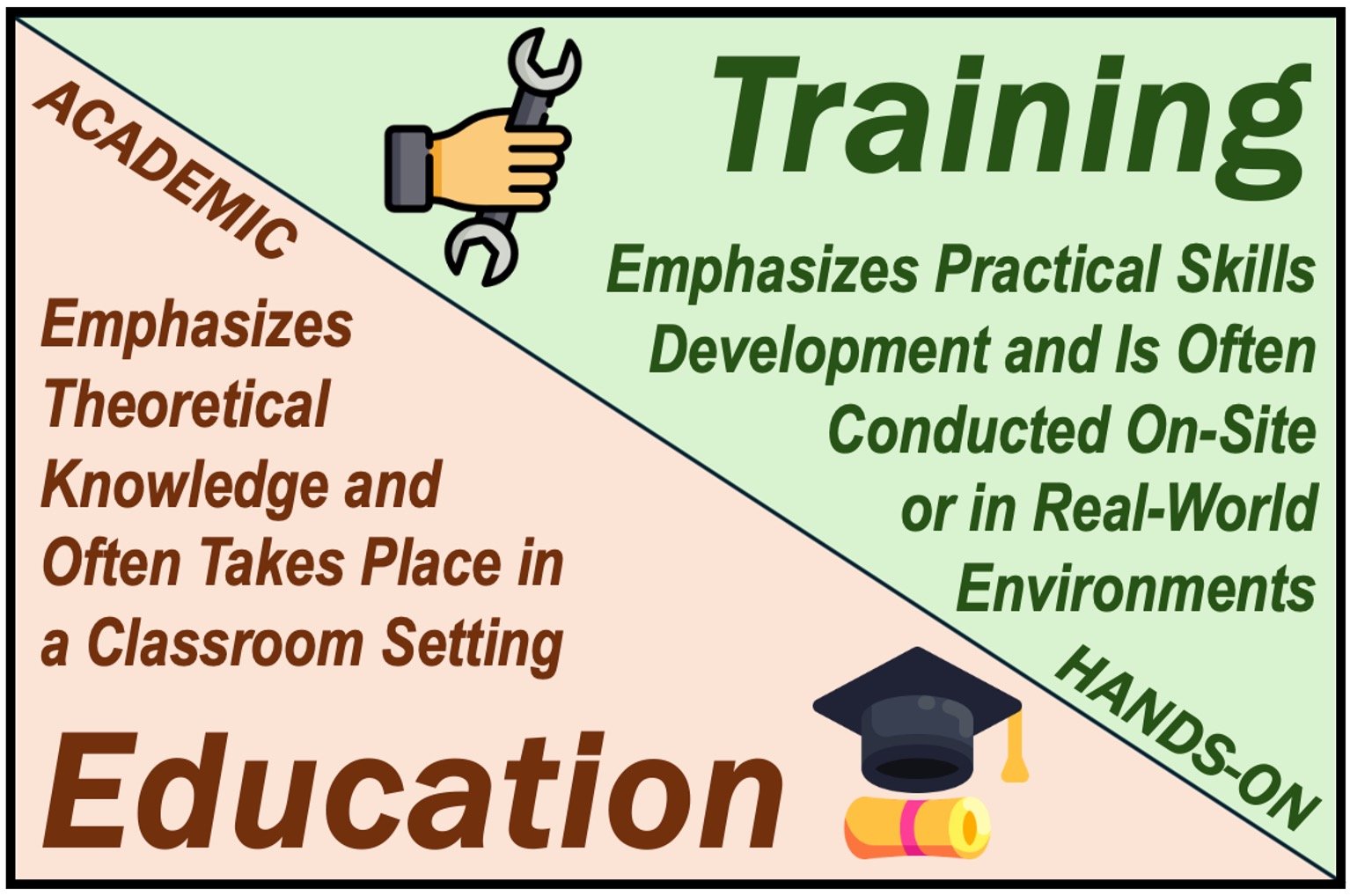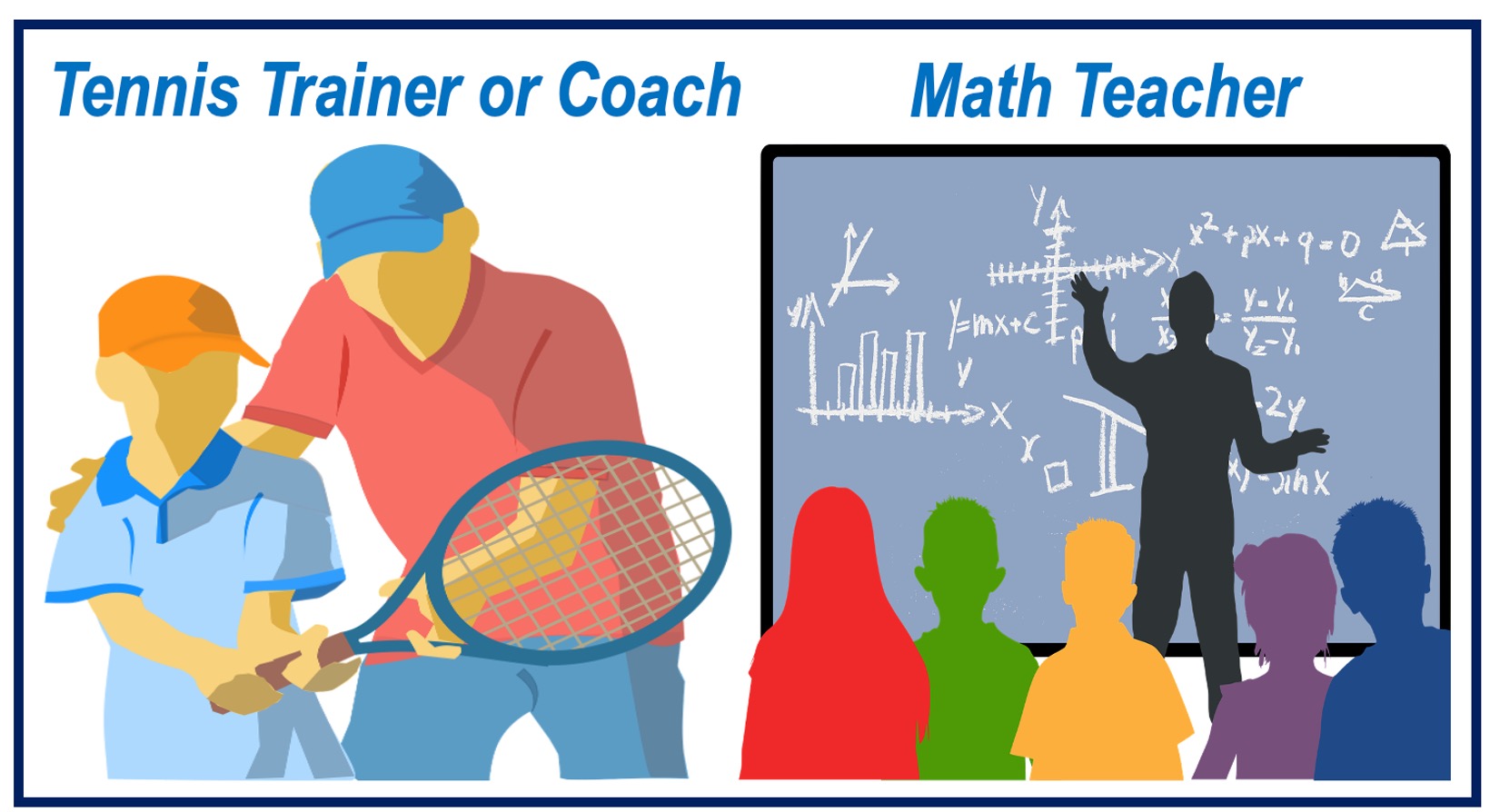Training is the action of teaching somebody a particular skill. It may also refer to the teaching of a type of behavior. Training may apply to either humans or animals. It aims to improve a person’s capacity, capability, performance, or productivity.
Training is also the action of undertaking a course of exercise in preparation for, for example, a sporting event. If I say “Mary will have to go into strict training,” I am referring to physical exercise and the practice of specific skills. Perhaps she will train for a tennis or hockey match.
BusinessDicitonary.com has the following definition of the term:
“Organized activity aimed at imparting information and/or instructions to improve the recipient’s performance or to help him or her attain a required level of knowledge or skill.”
In medium-to-large sized companies, the HR department is usually in charge of training programs. HR stands for human resources.

Training vs. education
Although the two terms are about learning, their meanings are not the same.
-
Education
Education is a process of systematic learning. In education, students or pupils learn things in an institution. The institution may be a school, college, or university.
Children’s education usually refers to their schools, what they do there, and what they learn. The term refers to both the academic levels they reach as well as learning good manners, right from wrong, ethics, etc.
-
Training
Training implies teaching a special skill or behavior. Workers in a company receive training when they need to or want to learn new skills.

If I work in a warehouse and want to learn how to use a fork-lift truck, somebody will have to train me. This type of learning is not education.
Children at school may sometimes find themselves in situations in which somebody trains them. For example, if you are in a school sports team, you may have to practice together three times a week. Those practice sessions are training sessions.
However, a school pupil or university student sitting in a classroom learning about geography or mathematics are in education, and not in a training course.
Southern New Hampshire University says the following regarding education versus training:
“Traditionally, training has been concerned with specific skills and shorter time frames. For example, how to program a CNC machine, or how to handle specific types of customer interactions.”
“Education, on the other hand, has been more about teaching someone a broad set of skills – such as critical thinking, researching and presenting information, and other traditionally ‘soft’ skills – that are transferable across a variety of fields.”
Teacher vs. trainer

Trainers and teachers are both trying to get people to learn things. However, teachers generally impart theoretical knowledge while trainers impart practical knowledge.
Sports teams have trainers, not teachers. If you want somebody to help you focus on your workouts in the gym, you have a personal trainer.
If, on the other hand, you are worried about passing a biology exam at school, you may try to find a private teacher.
Video – What is Training?
This video, from our sister YouTube Channel – Marketing Business Network – explains what “Training” is using easy-to-understand language and examples:
